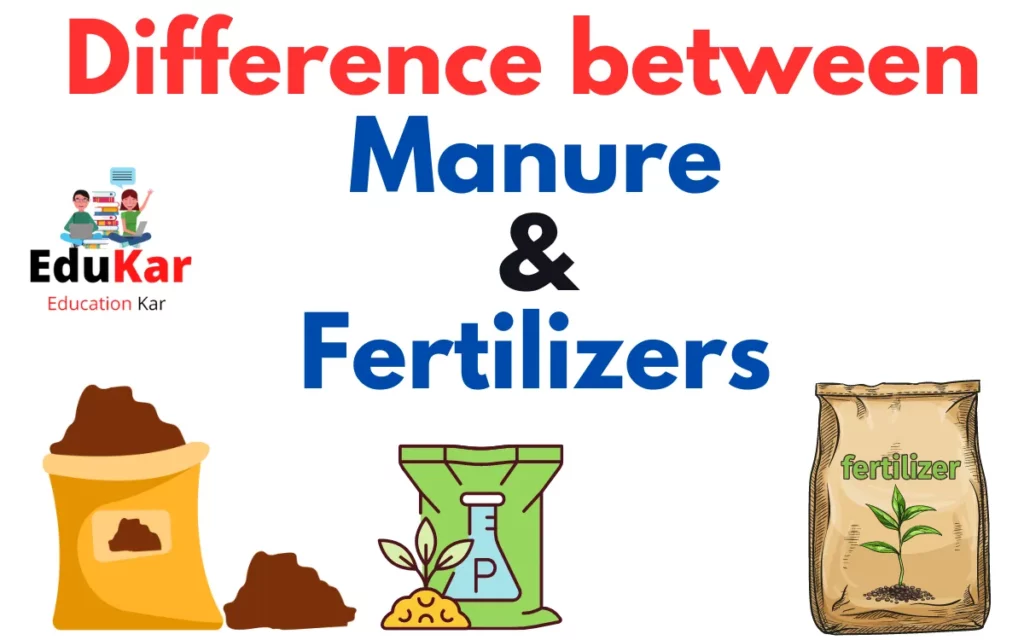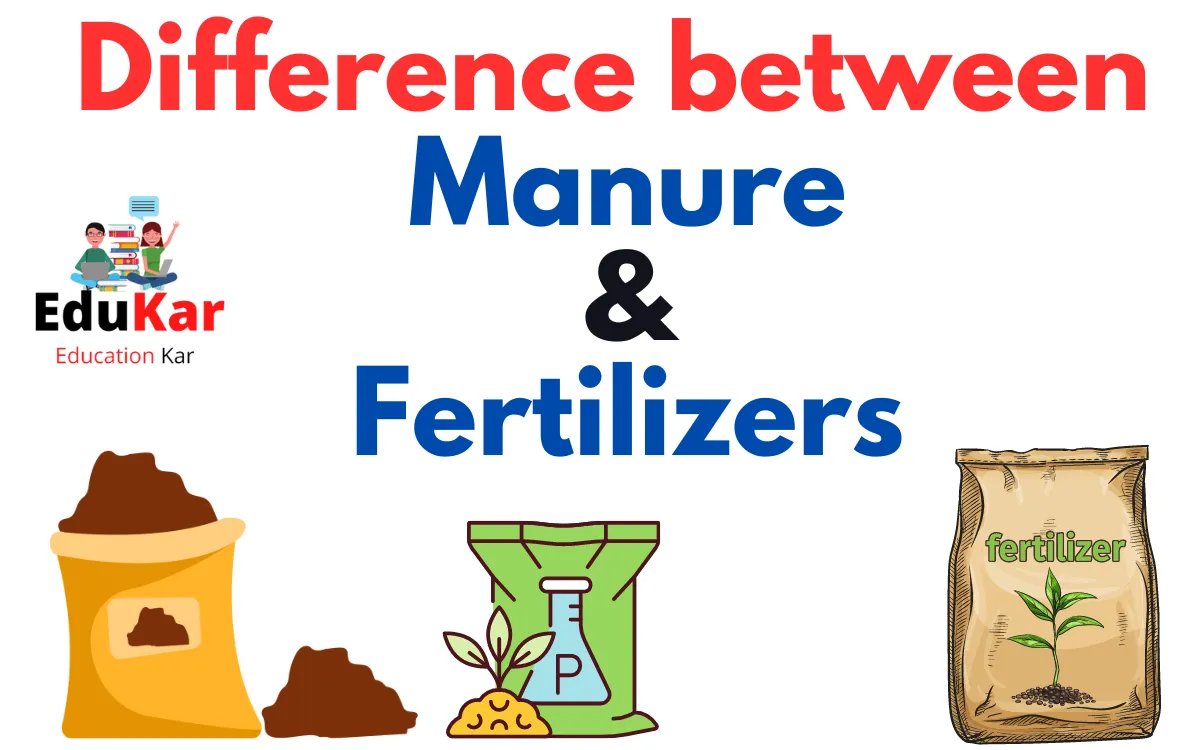Are you confused about the difference between manure and fertilizers? You’re not alone. Both manure and fertilizers are used to improve soil fertility, but they have some key differences. In this blog post, we’ll explore the difference between manure and fertilizers, and which one is best for your garden or farm.

Manure
Manure is a natural and traditional soil amendment that has been used for centuries. It is organic matter, typically obtained from animal waste, that is used to improve soil fertility. Manure contains a wide range of nutrients, including nitrogen, phosphorus, potassium, and micronutrients, but in varying amounts. It releases nutrients slowly over a long period of time, making it a gradual source of plant nutrition. Manure is often cheaper or free, as it is a byproduct of animal farming or agriculture. It also improves soil structure, water retention, and microbial activity over time.
Fertilizers
Fertilizers, on the other hand, are synthetic or natural compounds containing essential plant nutrients such as nitrogen, phosphorus, and potassium. They are often used to provide nutrients to plants that cannot be obtained from the soil. Fertilizers contain specific amounts of essential nutrients and release nutrients quickly, providing immediate plant growth and development. Fertilizers can be expensive, especially if high-quality or specialized, and their application can cause pollution and environmental damage if not used in the right amounts or applied correctly.
Difference between Manure and Fertilizers
| Parameter | Manure | Fertilizer |
|---|---|---|
| Definition | Organic matter, typically obtained from animal waste, that is used to improve soil fertility | Synthetic or natural compounds, containing essential plant nutrients such as nitrogen, phosphorus, and potassium, that are used to enhance soil fertility |
| Nutrient Content | Contains a wide range of nutrients, including nitrogen, phosphorus, potassium, and micronutrients, but in varying amounts | Contains specific amounts of essential nutrients, such as nitrogen, phosphorus, and potassium, depending on the type |
| Release of Nutrients | Releases nutrients slowly over a long period of time | Releases nutrients quickly, providing immediate plant growth and development |
| Environmental Impact | Less likely to cause pollution or damage to the environment due to slow release of nutrients | Can cause pollution and environmental damage if not used in the right amounts or applied correctly |
| Soil Health | Improves soil structure, water retention, and microbial activity over time | May have a negative impact on soil health and microbial activity over time |
| Cost | Often cheaper or free, as it is a byproduct of animal farming or agriculture | Can be expensive, especially if high-quality or specialized |
| Application | Requires large quantities to be effective and may require additional fertilizers for complete nutrient balance | Requires small quantities to be effective and provides a complete nutrient balance |
| Availability | May not be available in sufficient quantities for larger-scale agriculture | Widely available in various forms and can be tailored to specific crop requirements |
Which is better for the environment?
Manure is generally considered to have less of an impact on the environment than fertilizers. This is because it releases nutrients slowly over time, which reduces the risk of pollution and damage to the environment. Fertilizers, on the other hand, can cause pollution and environmental damage if not used in the right amounts or applied correctly.
Which is more cost-effective?
Manure is often cheaper or free, as it is a byproduct of animal farming or agriculture. Fertilizers, on the other hand, can be expensive, especially if high-quality or specialized.
Can manure and fertilizers be used together?
Yes, manure and fertilizers can be used together. In fact, a combination of both manure and fertilizer may be the most effective approach in some cases, as they can complement each other and provide a complete nutrient balance.
Conclusion
Manure and fertilizers both have benefits for plant growth and soil health. Manure is a natural and traditional soil amendment that slowly releases nutrients over time and is generally considered to have less of an environmental impact than fertilizers. Fertilizers, on the other hand, provide immediate plant growth and development, but can cause pollution and environmental damage if not used in the right amounts or applied correctly. In the end, the choice between manure and fertilizers depends on your specific needs and circumstances.
What is manure?
Manure is organic matter, typically obtained from animal waste, that is used to improve soil fertility. It is a natural and traditional soil amendment that has been used for centuries.
What are fertilizers?
Fertilizers are synthetic or natural compounds, containing essential plant nutrients such as nitrogen, phosphorus, and potassium, that are used to enhance soil fertility. They are often used to provide nutrients to plants that cannot be obtained from the soil.
What are the benefits of using manure and fertilizers?
Both manure and fertilizers have benefits for plant growth and soil health. Manure improves soil structure, water retention, and microbial activity over time, while fertilizers provide immediate plant growth and development and can be tailored to specific crop requirements.
